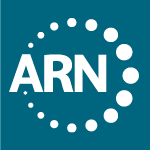ARN Health Policy Digest – February 2024
We are pleased to present the February issue of the ARN Health Policy Digest. This member benefit provides updates on health policy and legislative and regulatory developments that may be of interest to rehabilitation nurses.
Navigating Appropriations for FY 2024 and 2025
Last month, Congress managed to avoid a partial government shutdown by moving forward with another short-term "two-tiered" continuing resolution (CR) that will expire on March 1 and March 8. The text of the CR, which can be found here, extends funding for four appropriations bills to March 1. The remaining eight bills, including Labor-HHS, would expire on March 8.
With the two deadlines approaching quickly, Congress still has not released any of the allocations or text of the 12 appropriations bills. While we do not know the final allocation for the Labor-HHS appropriations bill, it has been publicly reported that there will be a cut below the FY 2023 level to this bill. We do not know how the cut will be applied, and if any of ARN's priority programs will see decreases. However, we have heard that policy riders are complicating negotiations on final funding levels. Speaker Mike Johnson (R-LA) did share that another short-term spending bill may be required to complete all 12 bills and prevent government shutdowns in early March.
Even though Congress has not finalized FY 2024 funding, advocates are preparing for FY 2025. ARN will continue to advocate for robust funding for the Health Resources and Services Administration (HRSA) Title VIII Nursing Workforce Development Programs, nursing research at the National Institute of Nursing Research (NINR), rehabilitation research at the National Institute on Disability and Rehabilitation Research (NIDRR), and Traumatic Brain Injury programs at the Administration for Community Living (ACL) and the Centers of Disease Control and Prevention (CDC).
ARN Endorses Legislation to Address Nursing Shortages
Representatives Suzanne Bonamici (D-OR), Lauren Underwood (D-IL), and Jennifer Kiggans (R-VA) introduced the Nurse Faculty Shortage Reduction Act of 2024 (H.R. 7002) to address nursing shortages by increasing the number of faculty at nursing schools. One of the key reasons for faculty shortages is the pay disparity between practicing nurses and nurse educators. The bill seeks to close this pay gap by creating a nurse faculty grant program, which would give priority to programs that serve vulnerable populations and recruit faculty from underrepresented backgrounds. Notably, companion legislation was introduced in the Senate (S. 2315), and ARN is proud to have endorsed the legislation. You can find the press release here.
Lawmakers Consider Legislation to Support Patients and Caregivers
The House Energy and Commerce Subcommittee on Health held a legislative hearing titled "Legislative Proposals to Support Patients and Caregivers" on February 14. Committee Chair Cathy McMorris Rodgers (R-WA) and Subcommittee of Health Chair Brett Guthrie (R-KY) announced 19 pieces of legislation to be discussed, one of which was H.R. 7208, the Traumatic Brain Injury Program Reauthorization Act of 2024. The Traumatic Brain Injury (TBI) Act, which has been reauthorized five times since passing in 1996, is set to expire on September 30, 2024. The landmark legislation specifically addresses TBI prevention, research, and service delivery through grants to states. During the Subcommittee hearing, bipartisan support was expressed for the reauthorization of the TBI Act, and ARN looks forward to supporting these efforts.
DOJ Proposed Rule on Medical Diagnostic Equipment
Last month, the Civil Rights Division of the Department of Justice (DOJ) issued a Notice of Proposed Rulemaking (NPRM) under title II of the Americans with Disabilities Act (ADA), regarding the accessibility of medical diagnostic equipment (MDE). The DOJ proposed to adopt specific technical standards and scoping requirements for different types of MDE, including equipment like medical examination tables, weight scales, dental chairs, x-ray machines, and mammography equipment. These standards are designed to address the barriers faced by individuals with disabilities when accessing MDE, thereby promoting inclusivity and equality in healthcare services. The primary objective of this proposed rule is to ensure that individuals with disabilities have equal access to healthcare services, programs, and activities offered by all State and local public entities.
As a member of the Independence Through Enhancement of Medicare and Medicaid (ITEM) Coalition and the Coalition to Preserve Rehabilitation (CPR), ARN signed onto a comment letter supporting the DOJ's continued efforts to enhance accessibility of MDE and prevent discrimination against individuals with disabilities in health care.
Notice of Funding Opportunities
Below is a list of other funding opportunities for interested ARN members.
- Advanced Nursing Education – Sexual Assault Nurse Examiners (ANE-SANE) Program (HRSA-24-017)
- Transformative Research to Address Health Disparities and Advance Health Equity (U01 Clinical Trial Optional) (RFA-NR-24-004)
- Clinical-Community Linkages to Address Unmet Social Needs and Adverse Social Determinants of Health to Advance Health Equity among Populations Experiencing Health Disparities: The Bridge-to-Care Initiative (R01 Clinical Trial Optional) (RFA-NR-24-003)
- Nursing Research Education Program in Firearm Injury Prevention Research: Short Courses (R25 Independent Clinical Trial Not Allowed) (PAR-24-061)
- Notice of Special Interest (NOSI): Addressing Organizational Factors to Prevent or Mitigate Nurse Burnout (NOT-NR-23-012)
- NINR Areas of Emphasis for Research to Optimize Health and Advance Health Equity (R01 Clinical Trial Optional) (PAR-22-230)
- Notice of Special Interest (NOSI): Availability of Administrative Supplements for BRAIN Initiative Recipients to Support Resource Dissemination (NOT-EB-23-010)
- Collaborative Research in Computational Neuroscience (CRCNS) NSF Innovative Approaches to Science and Engineering Research on Brain Function (NOT-MH-24-140)
- Stephen I. Katz Early Stage Investigator Research Project Grant (R01 Basic Experimental Studies with Human Required) (PAR-24-076)
- Stephen I. Katz Early Stage Investigator Research Project Grant (R01 Clinical Trial Not Allowed) (PAR-24-075)
- Notice of Special Interest: Health Influences of Gender as a Social and Structural Variable (NOT-OD-24-038)
- Mobile Health: Technology and Outcomes in Low and Middle Income Countries (R21/R33 - Clinical Trial Optional) (PAR-23-318)

Join Your Specialty Organization
Become an ARN member today to achieve your professional goals as a rehabilitation nurse
Learn More